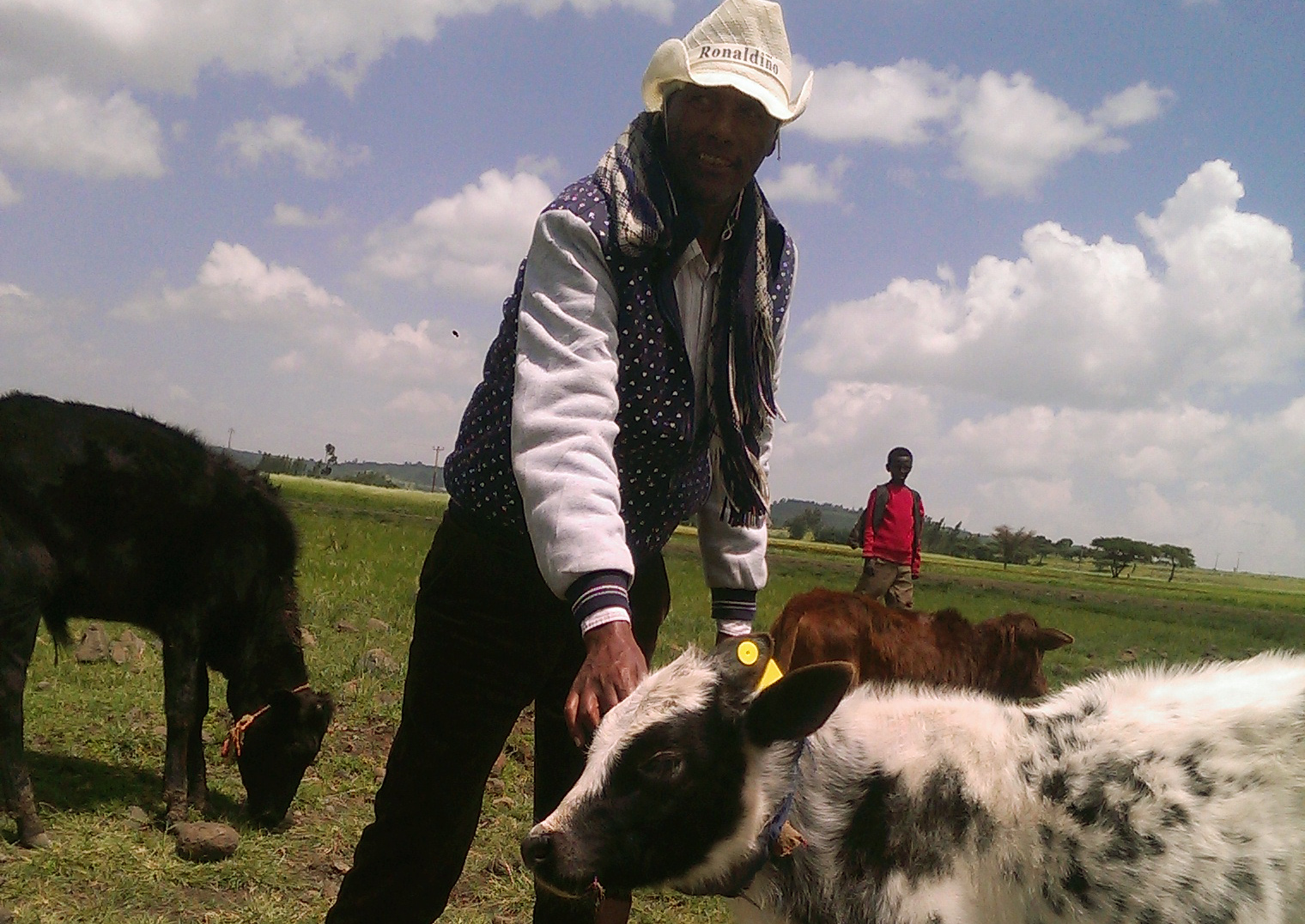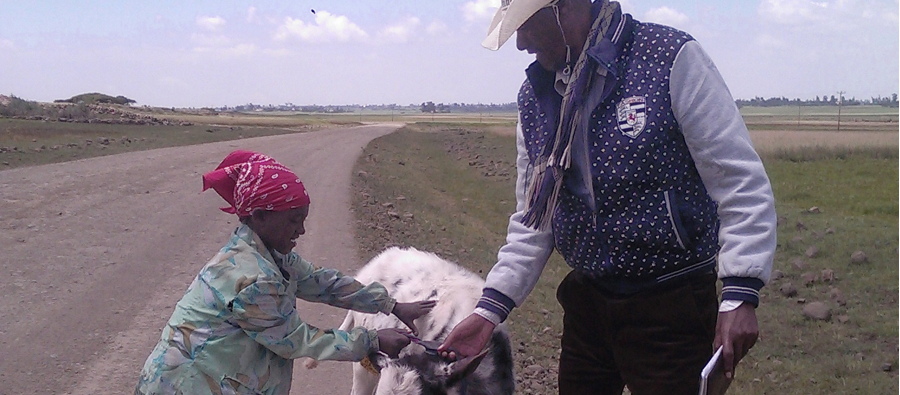When I was a boy, I remember government workers from the Ministry of Agriculture coming to the village where I lived in the Northern Shoa District of Oromia on motorbikes to give technical support about farming methods. Coming from a family of farmers, I was impressed. I liked the work they did and I liked their motorbikes as well! At home we produced different crops, including barley, wheat and fava beans on our three acre farm, and also kept livestock – so I understood different aspects of farming. I was around cattle and different crops from a young age. I understood the work that was involved, and I also understood the challenges that farmers in Ethiopia faced. From an early age, I thought about a career in the farm advisory service.
I went on to study animal science at Assela Agricultural College. I was lucky to get to finish my education. My sister was my only sibling to reach further education, graduating with a B.Sc in Biology. Of my six brothers and sisters, five of them work as farmers. Now, I work as a veterinary technician with the Ministry of Agriculture and have been trained by Self Help Africa to support the delivery of a gender targeting artificial insemination (AI) programme on the livestock component of an agricultural development programme in the Shoa region of Oromia.
The programme seeks to deliver AI services to farmers to cross-breed Holstein Fresian breed cattle, well known for their milk production, with local dairy cows. The local cows give farmers an average of 1.8 litres of milk per day, while the Holstein’s produce between seven and nine litres of milk. By providing sexed semen we are ensuring that the cross-breed calves are born female, and that they will produce a daily yield that is closer to the output of the Holstein Fresians.

Mengistu Alemu helps to deliver an artificial insemination program to improve dairy production
It is a challenging time for dairy farmers, as animal feed costs have doubled in the past year, which has had a negative impact on dairy farming in the region. But as a result of my work, milk production and the productivity of local cows has increased greatly, and the income of households has increased.
There are challenges to getting people involved in farming in Ethiopia. Farming here is at a subsistence level, and young people are discouraged, because it is regarded as hard work, and not very profitable. To change this trend we need to see intensive and modern agriculture, with technology being used and greater agricultural intensification needed. The issue of land ownership and consolidation also needs to be addressed, so that farmers can be encouraged to promote the adoption of technology and the mechanization of their farm work.
Farming in Ethiopia is largely rain fed with few inputs so production is low but it is still vital to the economy, providing livelihoods for 75 per cent of the population and representing 40 per cent of the country’s GDP. At present farm support services are weak, and in the AI sector where I work, there are a lot of challenges. Materials are in short supply, but you do what you can with the material that is available.
If you are interested in farming then it is a good job to get involved in, as you will need to be committed. Modernising the sector and promoting up to date professional knowledge and skills would also make it more attractive as a career, especially for young people. Agriculture can’t be looked at in isolation though. We need a multi-sectoral approach, with support from the school level upwards to encourage the brightest and best of the next generation in Ethiopia to follow in the footsteps of their predecessors, into a career in farming.
Are you a young professional in agriculture with a story to share? Tweet us using #IamAg to join our campaign to inspire more young people to get involved in agricultural careers.



